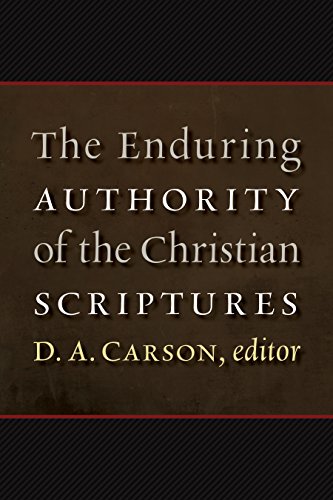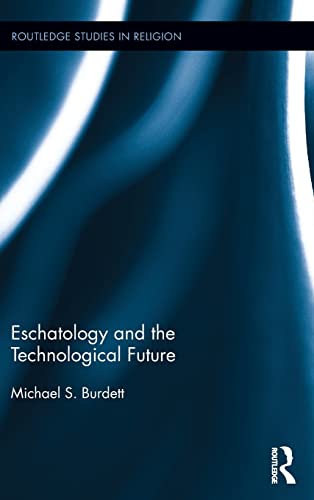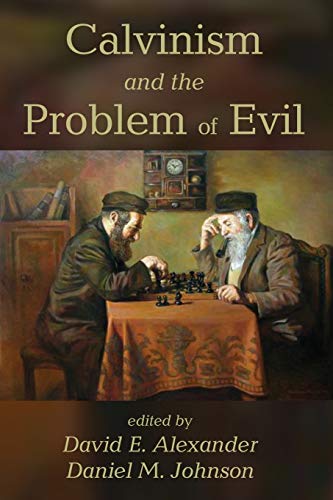Jonathan Edwards among the Theologians
Written by Oliver D. Crisp Reviewed By Joseph T. CochranWhen considering Jonathan Edwards (1703–1758), people tend to treat him monolithically as a pastor or scholar (ignoring one) or as a binary of the two (flipping back and forth as necessary). Each approach mistreats the reformed revisionist assembled by Oliver Crisp in Jonathan Edwards among the Theologians. Crisp, professor of systematic theology at Fuller Theological Seminary, presents an ensemble of essays found in other works, all revised with three fresh additions, that summarize what differentiates Edwards and makes him such a fascinating subject to study.
Crisp contends that Edwards was both “an heir to the Reformed tradition” and “a thinker … rethinking the Christian faith” (p. xix), who reconfigured Reformed theology “in a new key” (p. xviii). As such, Edwards’s program is an exemplar of constructive theology, which “must always hold on to what has gone before … whilst also dealing with the new and pressing challenges” (p. xix). In the ensuing chapters, Crisp validates his depiction of Edwards by comparing the eighteenth century preacher to others and by measuring him against the plumb line of the Reformed tradition. In fact, Crisp’s study is nearly as much a critique of reductionist notions of Reformed theology (cf. p. 80) as it is a reconfiguration of Jonathan Edwards, one of Reformed theology’s lionized representatives.
Crisp positions Edwards in chapter one as a non-confessional revisionist whose “intellectual project” attempts “to re-envision Reformed theology using aspects of early Enlightenment philosophy” (p. 4). This led to the “New Divinity” legacy, which transmitted Edwards’s method rather than his dogma. Though Edwards made doctrinal developments, his heirs frequently modified or rejected those developments in favor of their own.
From chapters two through nine, Crisp outlines Edwards’s doctrinal developments, many of which, if Crisp’s interpretations are accurate, lead readers to conclude that Edwards was much less orthodox than hailed by tradition. For instance, chapter two compares Anselm’s doctrine of God to that of Edwards. Here, Anselm held to divine simplicity and aseity as essential. Important to Anselm in this was a triple layer of ontology called the “divine ideas” (p. 23); these ideas delineated distinctions between Creator and creation, maintaining strict aseity. Crisp observes that Edwards and Anselm held to similar doctrine in that they both believed in an infinite “being of maximal perfection … beyond our comprehension” (p. 27). Whereas Anselm maintained a strict distinction between Creator and creature, Edwards perceived that creation is a communication or emanation generative of God. Crisp contends that Edwards’s idea of emanation made affirming aseity tenuous. He calls Edwards’ theological construction of God’s deity “unguarded” (pp. 32, 35).
In chapter three Crisp explores Edwards’s doctrine of the Trinity. Crisp interacts with other interpreters, but the bulk of his ideas depend upon Kyle Strobel, whom he commends for moving “the discussion forward in important respects,” though “his conclusions are not always on target” (p. 38). This chapter critiques Edwards, surfacing three problems: (1) the dilemma of holding to both simplicity and Trinity, (2) explaining how the divine essence relates to the divine persons, and (3) how each person of the Trinity is constituted by the other two. Crisp concludes “that these problems present serious objection to the Edwardsean view” (p. 59).
Continuing in chapter four, Crisp juxtaposes Arminius to Edwards on the doctrine of creation. Here, Jonathan Edwards—“the supposed paragon of Reformed, evangelical theology” (p. 78)—is “more exotic” on this doctrine than Arminius, commonly considered Reformed theology’s “antithesis” (p. 79). Crisp admits in this chapter that Edwards affirmed both divine simplicity and aseity (Crisp left Edwards’s adherence to these doctrines with more ambiguity in chapter two), but he goes so far as to assert, “Edwards also embraces a doctrine of panentheism” (p. 75).
This pattern of presenting Edwards’s theological constructions as departures from conventional Reformed theology continues in chapters five though nine. In chapter five Girardeau’s libertarian Calvinism is more in step with Reformed Calvinism than Edwards’s “determinism of the compatibilist variety” (p. 93). Chapter six uses Edwards’s organic analogy for the transmission of sin, mediate imputation, continuous creation, and four-dimensional ontology to astonish readers with Edwards’s “metaphysical elegance” (p. 120), which reconciles the problems of injustice and morality entailed in the doctrine of original sin. Chapter seven explains the narrative of how and why Edwards—who held to penal substitution—endorsed Joseph Bellamy’s governmental view of atonement. Chapter eight examines Edwards’s affective homiletics by studying his sermon, “The Excellency of Christ.” And chapter nine concludes the project by assessing Edwards’s orthodoxy.
If anything, Crisp gives readers the complex Edwards, who is worthy of imitation, but only if readers are open to “find themselves driven to more theological revision than they had anticipated” (p. xx). My main misgiving is that Crisp misconstrues Edwards at times or puts him on the horns of a dilemma that many face today. Quite honestly, Edwards would be appalled to be considered a panentheist. I gather that Edwards simply put texts like Colossians 1:16–17 in terms of both a spiritual and ontological sense. Moreover, the problems that Edwards face, as outlined in chapter three, are those that theologians grapple with today. We are hard-pressed to find theologians who accounted for divine simplicity collapsing God’s attributes prior to Alvin Plantinga, William Lane Craig, and John Feinberg.
I am sympathetic to Crisp’s reading of Edwards. Crisp does what any good analytic and philosophic theologian does—puts his subject against the litmus test of logic. It is imperative not to sweep the peculiarity of Edwards’s exegetical and theological constructions beneath a rug because he is one of America’s greatest theologians; I compliment Crisp for not doing so. I appreciate that Crisp commends Edwards for breaking free from Aristotelianism, Thomism, and confessionalism as an experimentalist who wrestled with questions posed by natural philosophers in a British Enlightenment context.
Also, I was taken by Crisp’s observation in the preface: “It may mean his interpreters must engage in theological repair as well as retrieval when assessing his work” (p. xviii). Crisp did not balk at this task. Still, it seems that Crip’s portrayal does not do enough to present the Reformed Edwards as it does to present and repair the problematic Edwards. It is overreaching to say that he attempts to present the Reformed Edwards. Perhaps this was never Crisp’s aim. Maybe his interest is to present to Evangelical readers an exotic Edwards, who does not fit so neatly into the Reformed confessional box. Regardless, it is clear that Crisp does not intend to harm Edwards’s legacy. Rather, Crisp indicates that Edwards has “the mark of a great thinker: not that he always had it right, but that he saw the important issues clearly” (p. xviii).
Oliver Crisp offers an innovator worthy of imitation and does so carefully according to clear terms. Lay leaders, pastors, and others looking to get the best of Crisp on Edwards, on the cheap, may not find the Edwards they anticipate, but they will follow Crisp to the Edwards he has reimagined for us.
Joseph T. Cochran
Joseph T. Cochran
Trinity Evangelical Divinity School
Deerfield, Illinois, USA
Other Articles in this Issue
Gospel Differences, Harmonisations, and Historical Truth: Origen and Francis Watson’s Paradigm Shift?
by Frederik S. MulderClaiming to stand on the shoulders of the later Origen, in Gospel Writing: A Canonical Perspective, Francis B...
“For Your Sake We Are Being Killed All Day Long”: Romans 8:36 and the Hermeneutics of Unexplained Suffering
by David StarlingThis article explores the function of Paul’s citation from Psalm 44:22 within the rhetoric of Romans 8:31–39...
Many churches seem to have lost the art of singing lament...
Reflections on Handling the Old Testament as Jesus Would Have Us: Psalm 15 as a Case Study
by Dane C. OrtlundIn appreciation of the renaissance of christocentric and redemptive-historical hermeneutics and homiletics in our generation, this article selects an OT text, Psalm 15, that appears on the surface to be maximally resistant to a Christ-centered reading and preaching of Scripture...
This article examines the meaning of blessing as expressed in the structure and narratives of Genesis...







